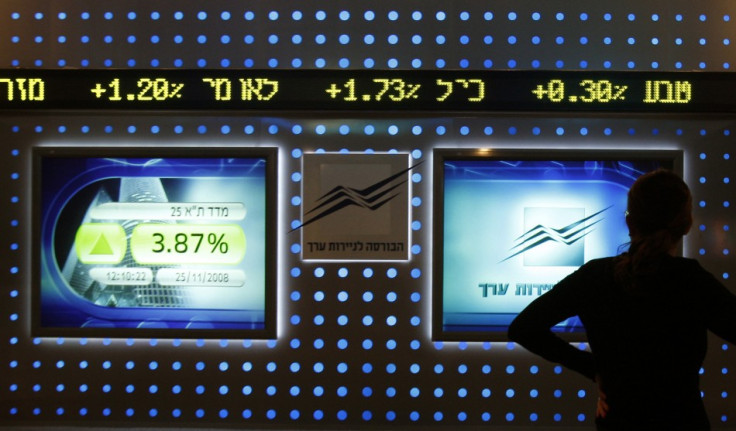Arab-Israel Cyberwar: New Twist to Decades-old Middle East Conflict

The Palestinian DDoS attack against the Haaretz Hebrew website on 25 January was just the latest in what has been dubbed the Arab-Israel cyberwar.
In a Twitter message, Anonymous Palestine claimed responsibility for the distributed denial of service attack: "haaretz.co.il Tango Down :)". The hackers pledged to continue the attack on Israeli websites, and hours later the website of another newspaper, Israel Hayom, was paralysed.
It seems that a more subtle, virtual conflict has developed between Israel and the Arab world and experts are debating whether it is just a mirror of contemporary cyberwars, fought by activists under the common flag of Anonymous, or the preliminary of an actual war.
The hacking appears to be the work of rogue civilians rather than governments. The economic weight of these attacks is very limited; nonetheless they carry an indubitable political significance.
All sides threaten to widen the spectrum of their attacks in the future. "Internet hacking is not unknown but the latest round of cyber-attacks has put us all on notice that the closed world of hackers has opened up on all of us with potentially devastating consequences," wrote blogger Marc Goldberg.
The Arab-Israel cyberwar started with an elusive young Saudi Arabian hacker, who calls himself 0xOmar. Early in January he shocked Israel by claiming to have stolen and posted details of 400,000 credit cards online. Israeli authorities admitted that 15,000 accounts were hacked.
"This is the beginning of cyberwar against Israel, you are not safe anymore," 0xOmar posted on Pastebin, urging hackers from across the Arab and Muslim world to target Israel. "We'll hack Israeli servers for different purposes like leaking Israeli data, sensitive and hidden information extraction and defacing websites," he wrote.
In retaliation, an Israel hacker posted information online about hundreds of Saudi Arabians, Egyptians and Syrians. Another hacker said he traced 0xOmar back to a 19-year-old man from the United Arab Emirates who was studying in Mexico.
But 0xOmar struck back and posted the credit card details and personal logins of 6,000 Israelis online. He contended that he had access to tens of thousands of other accounts.
"I want to hurt/harm Israel in any possible [way]," 0xOmar told Israeli papers "I'll DDos important sites, like Tel Aviv Stock Exchange, elal.co.il and currently we're DDOSing Bank Massad."
He claimed he would continue to strike Israel until its government "apologise for their genocide in Palestine and Gaza".
Many experts wondered how a 19-year-old hacker could breach the security systems of one of the most sophisticated and technologically advanced nations in the world.
"What the latest spate of hacking shows is just how vulnerable individuals and massive institutions are to concerted attack," wrote Goldberg. "It is now crystal clear just how much power is possessed by those few people who know how to cut to the heart of the online systems that we depend on so much."
It is interesting to note that many cyber-attacks were brought on by DDos assaults where a large numbers of computers are used to overload a website with requests, forcing it offline. It is relatively easy to carry out as it does not require a specific knowledge of IT codes.
When the political weight of these attacks became clear, Islamist movements started to welcome them as a new form of resistance. Hamas in Gaza said it was a sign of the creativity of Arab youth.
"The penetration into Israeli websites opens a new front for electronic resistance and war against the Israeli occupation," said Hamas spokesperson Sami Abu Zuhri. "Hamas praises the Arab hackers and calls on the Arab youth to play their role in cyberspace in the face of Israeli crimes."
Other hacker groups have joined 0xOmar in his personal fight against Israel. The network, appropriately called "Nightmare Group", targeted Israeli national airline El Al the Tel Aviv Stock Exchange and forced it offline. In revenge, the Israeli IDF Team released on Facebook 100,000 alleged usernames and passwords of Arabs and took down several websites in Arab countries.
It later emerged that many of the usernames were for people not connected with the Middle East. "The idea that these cyber warriors are operating on behalf of anyone is nonsense," argued Goldberg.
Members of Team IDF told newspaper Yedioth Ahronoth: "We are doing this out of a sense of concern." .
"We don't believe in hurting innocent civilians. There is no reason to publicise the data at this stage," they said. "If there isn't any choice, we'll have to do that as well. We are only trying to prevent further attacks in the future on the state of Israel."
As peace dialogues between Israelis and Palestinians seem at a dead end the 70-year old conflict may have taken another, surprising step: the cyberwar.
© Copyright IBTimes 2024. All rights reserved.






